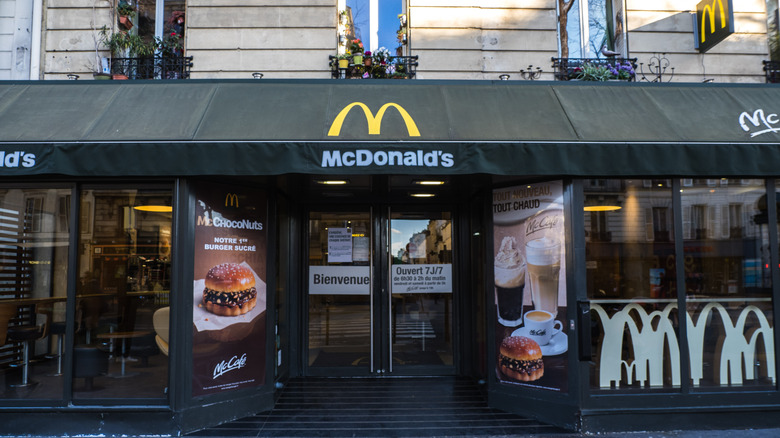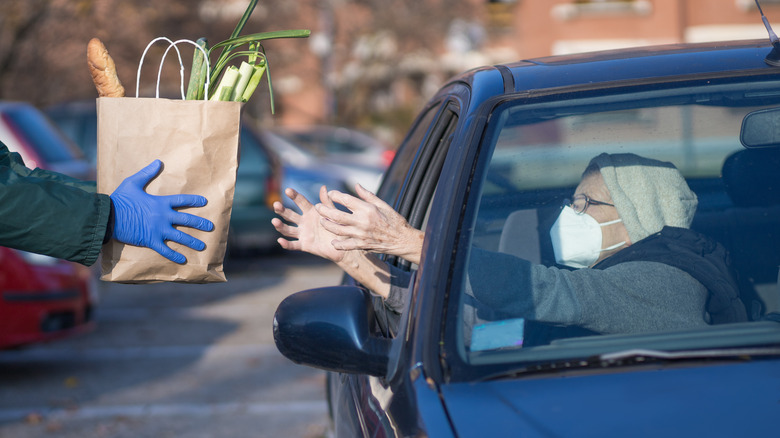The Heartwarming Reason This French McDonald's Was Taken Over By Employees
The building still has the roofline and the golden arches that are just as recognizable in France as they are in the U.S. But when a car pulled up to the old restaurant's drive-thru, they were surprised to learn they couldn't order a cheeseburger with a side of frites. The food inside the McDonald's building in the 14th district of Marseille isn't fast food, and it's not meant for paying customers. Shortly after employees took over this particular McDonald's location in late 2019, they converted it into a food bank (via The Washington Post).
To an American, much of McDonald's French menu will look familiar: the Crispy Chicken Sandwich, the Happy Meals, and the Big Mac. One thing is dramatically different, however: the relationship between workers and management. McDonald's workers in the U.S. aren't unionized, and a Vice investigation revealed that the corporate office even spies on activist employees who might be trying to organize a union. In France, on the other hand, McDonald's employees are part of a strong union, The Washington Post reported. After the owner of the Marseille McDonald's said he was going to sell the property, employees took control of the restaurant. Soon after, the COVID-19 pandemic hit, and the workers decided to turn their defunct McDonald's into a food bank.
French city officials praised employees for converting the McDonald's into a food bank
The food bank in Marseille, France that until recently was a McDonald's is now called "l'après M," or "the After M." It provides a little bit of joy and relief in a part of the city that was already hard hit by poverty when the COVID-19 pandemic arrived, according to a report in The Washington Post. "They come without a smile, but they leave with one," a volunteer said of the food bank's visitors. The city leadership leans to the left politically, which helps explain why workers occupying someone else's property hasn't led to dire consequences for them. In fact, the city government has praised the workers as role models and said it would purchase the building to give the occupation and the food bank legitimacy. A city official said the government isn't saying it's okay to do something illegal, but it does want to promote the idea of people taking the initiative to improve their community.
The current arrangement is vulnerable, however, to any changes in Marseille's politics. The right-wing candidates who recently won elections in the city may not be as sympathetic to a food bank established through an illegal worker takeover. So the city is working with the food bank's organizers to come up with a long-term purpose for the old McDonald's — maybe a job training center for local youth, or a healthy and affordable restaurant.

